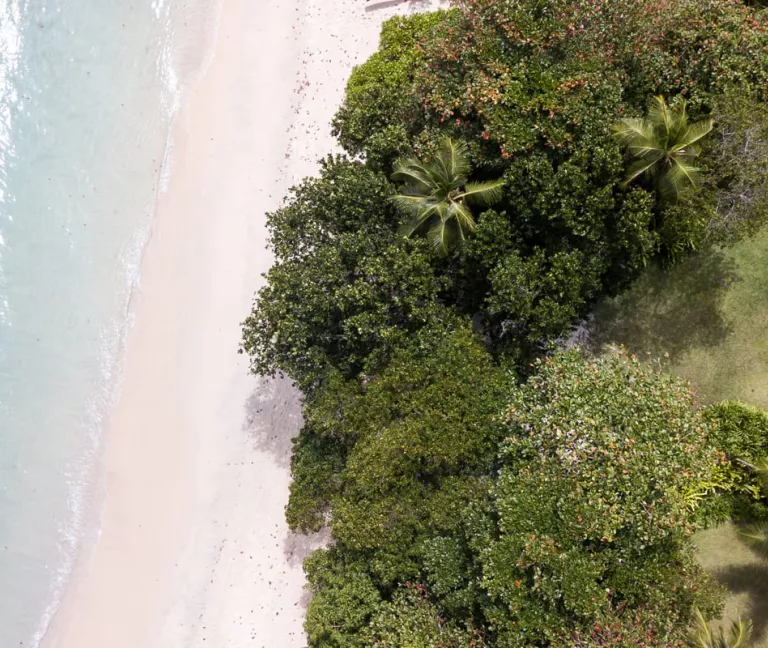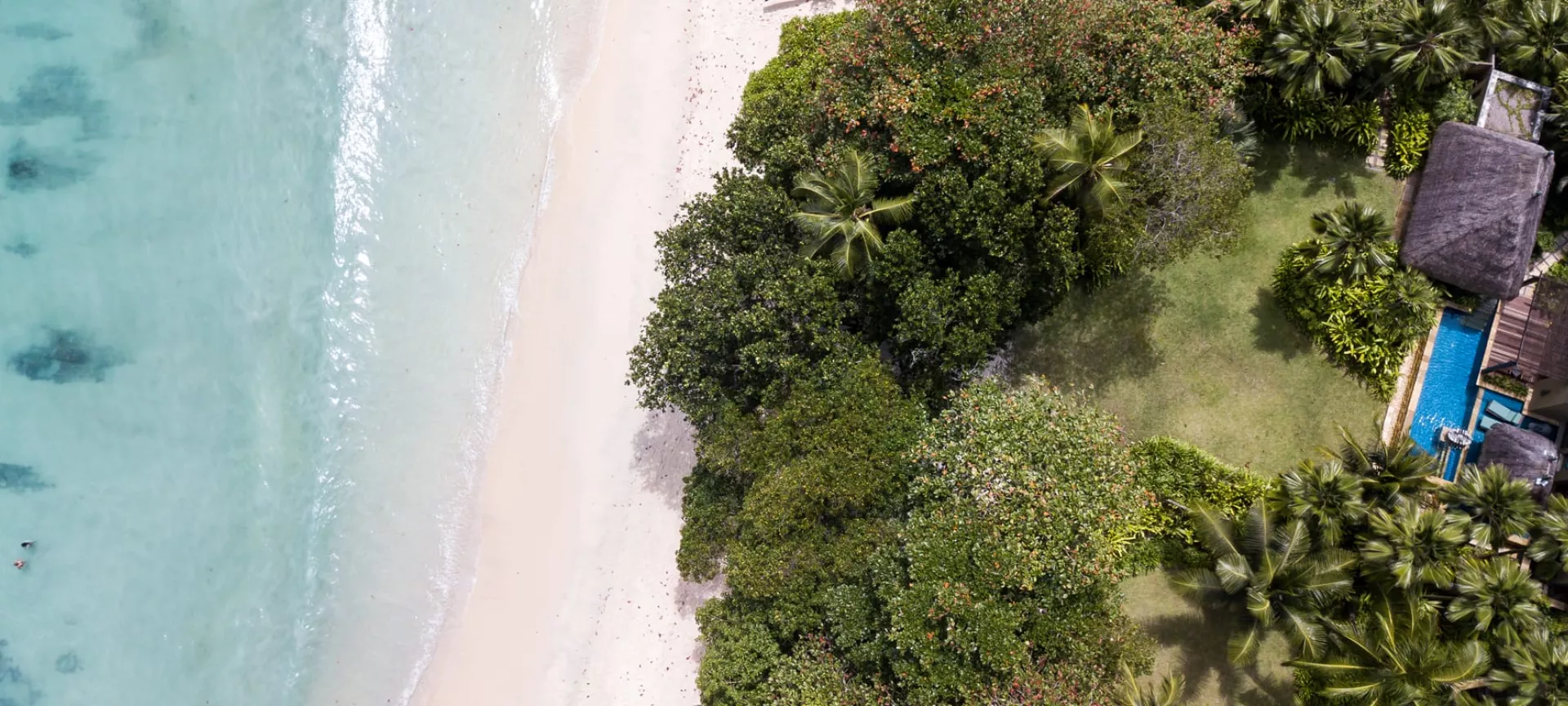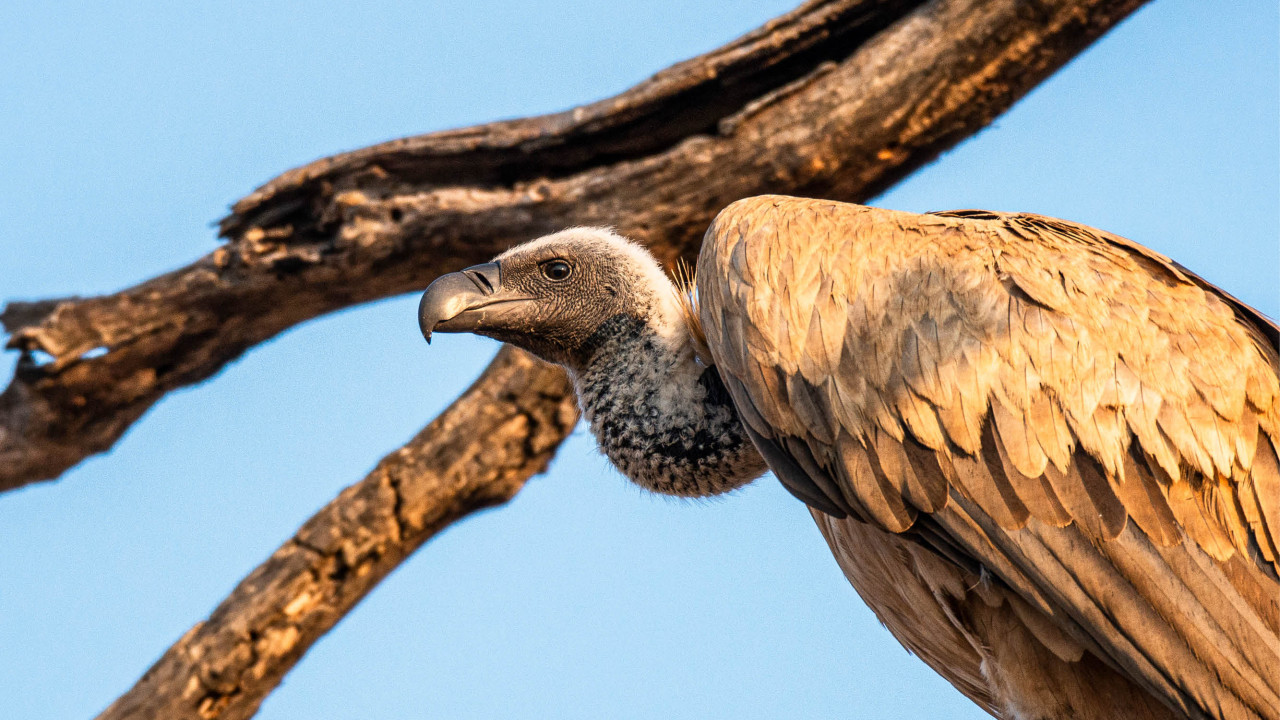
Observing vultures and watching their feeding habits, it's no surprise that these impressive birds have fallen foul to authors and directors alike.
They’re arguably even more villainised than the hyena!
This villainisation is entirely unfounded and, as is normally the case, purely based on how the animal is observed. It is in fact the case that many African cultures respect and honour these magnificent birds, even to the extent that local chiefs would feed vultures to keep them looking over their land.
Some local folklore even suggests that vultures are a symbol of fertility: ‘it was the grandmother who laid many eggs according to one story. Eggs out of which emerge not little vultures, but any kind of animal that there is on earth. Some tribes believe that the vulture was the original great earth mother. And our people believed that where there are vultures, there, there is safety, there, there is purity, there, there is life’1.
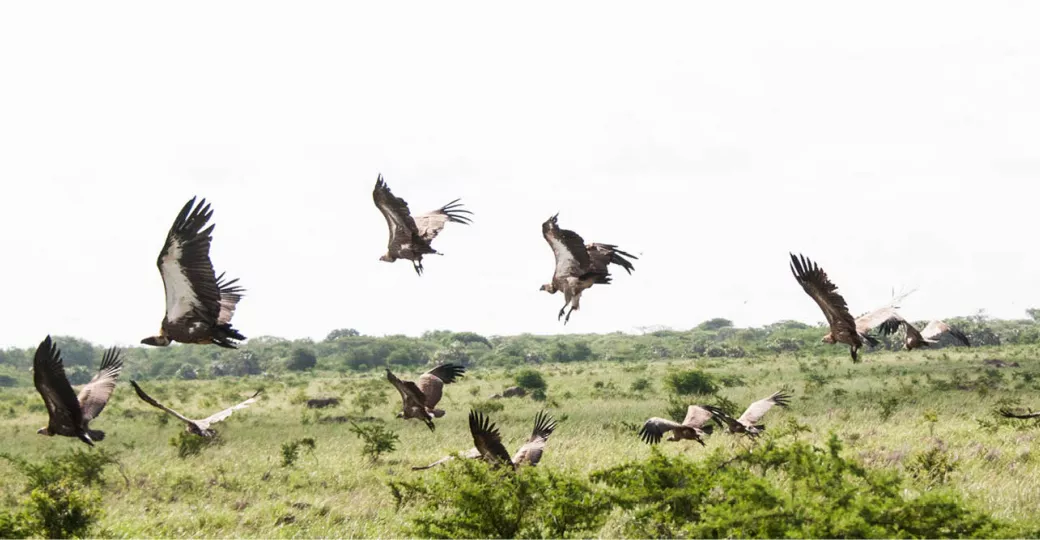
White Backed Vultures in Phinda Private Game Reserve, South Africa
Sadly though, thanks to a rise in traditional medicines, among other factors, 11 of
the 16 African vulture species are at serious risk of extinction within our
lifetimes. The effect of which would be catastrophic.
Vultures, in many ways, act as a waste and disease prevention unit. Through their phenomenal eyesight (supposedly 8 times better than that of humans) vultures are able to find carcasses from over 12km away. Once a carcass has been located, either through spotting of the carcass itself or, rather intelligently, spotting predators chasing their prey, the birds will swoop to scavenge what they can. As soon as they have access to a kill they begin to feed at a phenomenal pace.
Due to the numbers of vultures usually found on a kill, and the speed at which they eat, carcasses are usually stripped completely clean very quickly. This happens so fast that the risk disease can spread through flies and bacteria is greatly reduced.
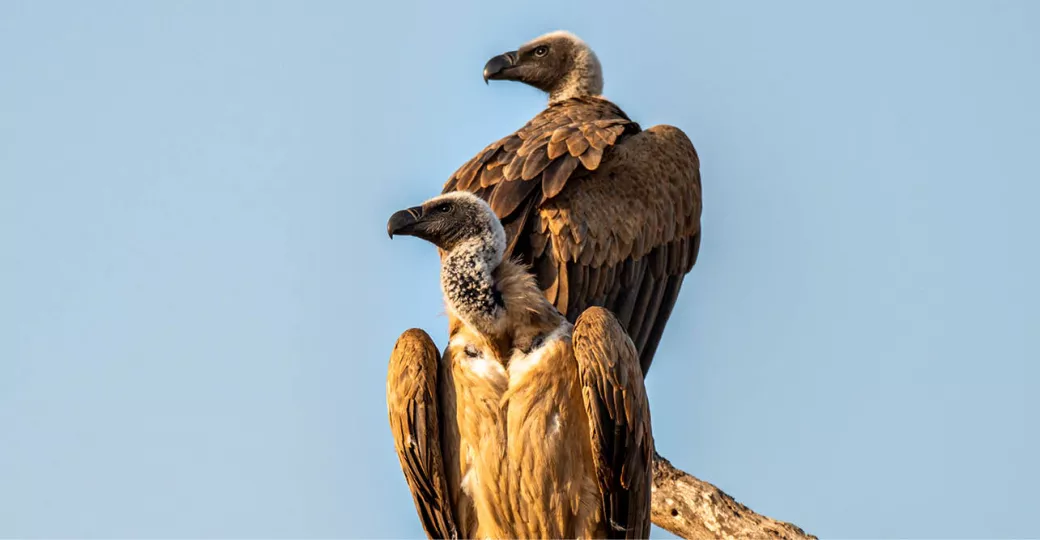
White Backed Vultures in Timbavati Game Reserve, South Africa
Beyond their ability to prevent the spread of disease through their own means, with modern day tracking devices, following the feeding patterns of vultures has actually played a vital role in preventing the spread of anthrax and other animal mortalities.
To find out more about the importance of vultures in the wilderness please feel free to get in touch or read some interesting articles below.
The impact of traditional use on vultures in South Africa | McKean, Mander, Diederichs, Ntuli, Mavundla, Williams. Wakelin.
The Importance of Vultures |Stefenie Botha (Winchester Marketing)
Endangered Vultures Critical to Disease Control in Africa | National Geographic Society Newsroom
References:

Toby Pheasant
Toby first visited Africa at the tender age of four when he accompanied his family on their first of several safari holidays. From that moment on Toby’s love affair with Africa’s nature and wildlif...
View profileNever miss a notebook entry with our newsletter

